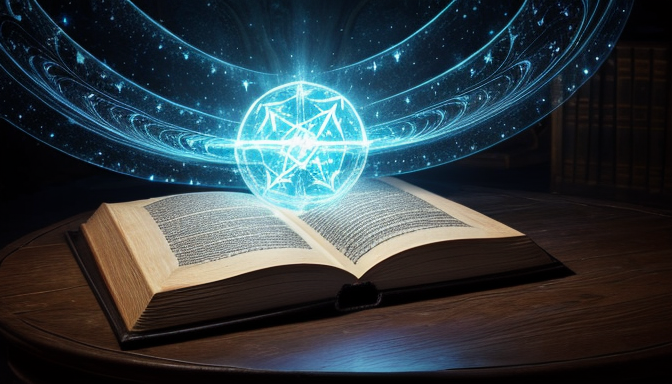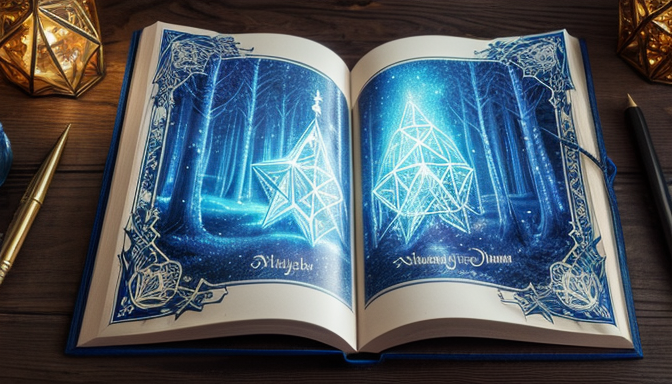In the realm of fantasy writing, a unique magic system is not just an accessory; it’s the very heartbeat of your narrative. Imagine diving into a world where magic is as common as breathing, yet each spell has its own flavor, its own rules. This is where the distinction between soft and hard magic systems comes into play. A soft magic system offers a sense of mystery and wonder, while a hard magic system provides structure and limitations, which can lead to thrilling plot twists!
When crafting your magic system, consider how it influences your world. Does magic dictate the social hierarchy? Are there arcane traditions that shape the culture? For instance, in some stories, magic might be reserved for the elite, creating tension and conflict, while in others, it could be a communal practice that brings people together. The way magic interacts with the world can enhance your world-building tremendously.
Moreover, think about the classification of spells. Are they categorized by elements, intentions, or perhaps even the emotional state of the caster? Such details not only enrich the narrative but also provide a framework for character development. As your characters grapple with their magical abilities, they embark on a journey of self-discovery that resonates deeply with readers.
Ultimately, a well-crafted magic system is like a double-edged sword; it can empower your characters while also presenting them with challenges. So, whether you choose to weave a tapestry of intricate spells or keep it simple and mysterious, remember: the magic you create is the magic that will captivate your audience!
The Role of Magic in World-Building
Magic is not just a sprinkle of fairy dust in fantasy writing; it’s the very foundation upon which entire worlds are built. Imagine stepping into a realm where the laws of physics bend and twist at the will of a sorcerer. This is the essence of a well-defined magic system. It creates a believable and immersive setting that can captivate readers and pull them into the narrative like a strong current. From the bustling markets of a city where spells are traded like currency to the quiet forests where ancient rituals are performed, magic influences every aspect of the world.
There are various types of magic systems, ranging from soft to hard magic. In a soft magic system, the rules are vague and often undefined, allowing for a sense of mystery and wonder. Think of it like a gentle breeze that guides the plot without constraining it. On the other hand, hard magic systems are governed by strict rules and limitations, akin to a well-oiled machine that operates on logic and consistency. This creates tension and conflict as characters navigate their capabilities and boundaries.
Moreover, the classification of spells and the existence of arcane traditions can further enrich the world-building process. Consider the following:
- Elemental Magic: Fire, water, earth, and air manipulation.
- Necromancy: The art of raising the dead or communicating with spirits.
- Divination: The practice of predicting the future or uncovering hidden knowledge.
Each of these categories not only adds depth to the magic system but also shapes the cultural, political, and social dynamics within the story. By crafting a unique magic system, writers can create a tapestry of interactions and conflicts that keep readers on the edge of their seats, eagerly turning pages to discover what happens next.

Character Development Through Magic
In the realm of fantasy, magic isn’t just a tool; it’s a catalyst for character development. Imagine a world where every spell cast reveals a new facet of a character’s personality. A well-crafted magic system can influence a character’s arc, motivations, and conflicts in profound ways. For instance, consider a character who wields a powerful but dangerous magic. This internal struggle can drive the narrative, as they grapple with the responsibilities that come with such power.
Magic systems can be categorized into two main types: soft and hard. Soft magic systems, like those seen in Tolkien’s works, are often vague and mysterious, allowing for a sense of wonder and unpredictability. In contrast, hard magic systems, such as Brandon Sanderson’s, are governed by strict rules and limitations. These distinctions can shape how characters interact with their powers:
| Magic Type | Characteristics | Impact on Characters |
|---|---|---|
| Soft Magic | Mysterious, vague | Creates wonder, less focus on rules |
| Hard Magic | Defined rules, structured | Encourages strategic thinking, moral dilemmas |
Moreover, the way characters engage with magic can also reflect their personal growth. A character who initially uses magic recklessly might learn to wield it with caution and wisdom, embodying the theme of responsibility. This transformation not only enriches their individual journey but also resonates with readers, making the narrative more impactful. So, as you craft your fantasy world, remember: the magic you create can shape not just the plot, but the very essence of your characters.
Frequently Asked Questions
- What makes a magic system unique?
A unique magic system is characterized by its distinct rules, limitations, and sources of power. It goes beyond mere spells and incantations, incorporating cultural significance and social impact within the story. Think of it like a fingerprint—no two systems should be the same!
- How does a magic system enhance world-building?
A well-crafted magic system adds depth to the world you create. It shapes the cultures, politics, and social dynamics of your setting, making it feel alive and believable. Imagine how magic influences everything from daily life to epic battles—it’s the glue that holds your world together!
- Can magic systems influence character development?
Absolutely! Characters can be defined by their relationship with magic. Whether they wield it responsibly or abuse it, magic can drive their motivations and conflicts. It’s like a double-edged sword—how they handle it can lead to growth or downfall!
- Is it necessary to have rules for a magic system?
Yes, having rules is crucial! They provide structure and prevent your magic from becoming a convenient plot device. Think of rules as the foundation of a house—without them, everything could crumble!

Recent Comments